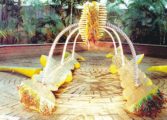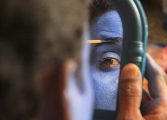Despite Bloom and Nussbaum being on two contrary sides of the debate, they share some commonalities. Let us note that both authors stand within a particular intellectual tradition that makes a distinction between the necessary/mechanical arts (meant for practical purposes) and the liberal arts that is seen as essential for cultivating freedom of the mind in order to take active part in civic life (meant for citizenship). It is within this common tradition that they articulate their different notions of liberal education, even while sharing a commitment to democracy and the centrality of humanities, particularly the study of Great Books or classics, to the educational programme.
It appears from the discussion that one of primary reasons for the crisis perceived in the university is the democratic pressure on the university. We can understand the claims of democracy on the university in two ways. One is to understand the function of the university in terms of cultivating the nobility of intelligentsia, which is the creation of nobility not based on wealth or birth but cultivation. Unlike the traditional idea of the landed gentry, where nobility was based on wealth, land and birth, the idea of nobility of intelligentsia, crucial to a democracy, is by its very definition, open to all. However, we must make a distinction between creating a nobility of intelligentsia and the dominant way to understand democratic claims on the university that makes the institution susceptible to identity and representational politics. Clearly, Bloom wants to uphold the nobility of intelligentsia, which is open to all but reject identity politics. Bloom is clear we need a liberal democracy for the pursuit of contemplation to take place unhindered but wants to maintain that there are values other than equality which are worthy of being pursued even in a democracy and one of these is theoretical contemplation which can only be pursued in the university.
If we make a distinction between a good life that is often desired and a good life that is desirable or worthy of being desired,[23] for Bloom, the claims of social justice and equality would be part of the first and cultivating the nobility of intelligentsia who pursue cultivation/reflection as part of the second. He wants to claim that there is a notion of good life which is necessarily an individual pursuit, where contingencies of time and space can be overcome and this is best represented by the ideal of theoretical contemplation. Hence, Bloom makes a case for classics, for classics set standards and represent the best and most important thoughts of a culture. They are ideal for reflective contemplation because they are not meant for practical decision- making and transcend the contingencies of time and space. However, Bloom’s formulation of eternal truths of philosophy which is transcendent and which can be accessed by reading ancient classics and which possess “true,” human nature makes him liable to criticism because then it renders the pursuit of good life in terms of a semi-religious, mystical language. It conveys the impression that the pursuit is for a “chosen” few who have special access to this transcendental truth which is exactly how Nussbaum reads him.
Nussbaum on the other hand wants to argue that the desires of people from the various sections of the population must be treated equally and the good life they desire must be accorded respect. Philosophy for Nussbaum is therefore the cultivating of practical reason and since this is a universal human faculty and a good life is desirable for all, the university must be made open to claims of social justice and equity. However, Nussbaum too, it is evident, wants to make a distinction between a good life that is desired and a good life that is desirable by distinguishing herself from those in favour of identity politics which ties people to the contingencies of here and now and transcend these particularities to emerge as world-citizens. Interestingly, in both cases, the idea of good life involves transcending the particularities and both Bloom and Nussbaum mark as desirable an access to a universal not bound by time, culture and space. However, by bringing in notions of social equity and social justice as the main planks in her ideal of education, Nussbaum seems to deny that values other than social equality such as reflective contemplation (which are not for purposes of making practical decisions) meant for the generation of alternatives other than what we are accustomed to, is a desirable.
It is also significant that Bloom and Nussbaum speak from within a particular intellectual tradition, yet underlying both their accounts one finds the notion of education as liberating oneself from tradition through the exercise of Socratic reason. We find that when they are giving us sociological descriptions, they recognize the role of traditions both in their lives and the intellectual tradition they draw from. However, when they speak about the ideal of liberal education, they characterize it in terms of liberation from traditions and undermine the very tradition that has made their thought possible. We need a greater reflection on the role of traditions in both constituting our notions of good life and the specific forms of reflection they generate. The notion of good life that Western universities think as worthy of initiating the next generation of learners, it must be remembered, are formalizations of already existing patterns of actions and behaviour in the West with members of the community possessing a knowledge of how to engage in that pursuit. This is the sense in which notions of good life cannot be separated from the practices which traditions as learning arrangements initiate one into.
How then should the debate on education proceed in India today? What kind of obstacles do we face? A primary difficulty in relating the models discussed above to non-Western countries like ours is that our predicament is not about accommodating diverse immigrant cultures into our national imagination. Our predicament is that the university as an institution of higher learning has been with us for more than a century and a half but the ideal of liberal education and the notion of good life it embodies (of which the university is a lofty expression) continues to evade us. Hence, it is often expressed that though we have several universities, liberal education as an ideal has not taken root. Secondly, “our own ways” immerse us into practices which embody a notion of good life that we no longer are self-consciously able to reflect on and yet the orientation is enough to tell us that these may be worthy of articulating and securing in contemporary times. Thus, the notion of good life embodied in the idea of liberal education and the notion of good life that our traditions initiate us into both seem unavailable as part of our educated, public discourse.
Part of the problem is that the notion of good life that has come to us with the university and liberal education is eclipsed by the political goals of liberalism.[24] The university, especially for us, is too easily placed as part of a good life we desire – as a way to acquire a certificate, accumulate wealth and other benefits, pursue a career, fame and other material goals. But we must remember that the Aristotelian distinction between the necessary conditions to enable the pursuit of good life and a good life that is worthy of being desired is essential for the idea of liberal education. In resting on this distinction for its very meaning, liberal education’s commitment to good life necessarily involves a community dimension that is in tension with liberalism.[25] Liberalism prioritizes individual rights over notions of good life and is indifferent to the conceptions of good life which it pushes to the private domain of the people. Its commitment is only to creating the necessary conditions for the pursuit of good life, while leaving it to individuals to pursue conceptions of good life according to their desires. Articulating a common notion of good life, for liberalism, would be seen as coercion and infringement of individual autonomy to choose ends. Liberal education, on the other hand, has a publicly articulated conception of good life (referred to variously as disinterested pursuit of truth and knowledge, contemplation, self-examination, eudaimonia or happiness in Aristotle) which is beyond the subjective notion of good life as desired by individuals and this articulation presupposes an account of community and its formative aspects that liberalism tends to ignore.[26] Hence, the importance of classics to the idea of liberal education for classics are those which are conferred the place of being great works by a cultural tradition. They are important to a culture because they represent some of its most important reflections, exercising a formative influence on members of a culture in direct and indirect ways and therefore to enter into a conversation with them at various points in history is essential for an individual’s self-understanding. Hence initiating the next generation of learners into classics is considered as an essential aspect of a liberal education, a process through which individual learners come to see themselves as part of larger intellectual community by participating in shared, common understandings and further refining the process of reflection.
If one of the essential features of a liberal education then is to know one’s own cultural tradition in order to understand how we came to be the way we are, and if, as some have argued, to understand it necessarily requires us to see it in relation to another cultural tradition(s)[27] then we have a peculiar problem. While in the Western universities, getting initiated into Western intellectual tradition is equivalent to getting to know how they came to be the way they are, in the Indian context we do not have such an easy equivalence. As part of university study, we have largely been initiated into the categories of another tradition i.e., the Western intellectual tradition, but a self-conscious reflection on the categories of our own remains marginal.[28] These alternative structures of thought and action are more likely to be passed on through everyday, vernacular languages. In other words, our intellectual traditions are passed on not as much through the universities as through the family milieu, its customs, rituals, rites its textual (oral and written) and performative traditions. These initiate the next generation into the know-how or judgement of how to perform an appropriate action (largely a non-propositional form of knowledge) as part of the grammar of living cultural traditions. On the other hand, the university, especially the humanities, is primarily the study of the textual tradition, involving a distinct kind of know-how that prioritizes descriptions or knowledge about an object/practice which is transmitted through propositions. This is largely because a model of knowledge that sees knowing-that as prior to knowing-how has dominated our learning where action is seen as derived from the knowledge of true propositions. If we were to instead approach knowledge as a know-how where we recognize that know-how is logically prior to know-that,[29] then we would also focus on developing tools to understand forms of knowledge that are non-propositional in nature. Such an endeavour would be more fruitful in understanding practical forms of life like ours where puranas, itihasas, art, architecture, craft and other performative traditions such as rituals, music, dance, and reflective recitations play a central role. It would help us pose new questions with regard to how to conceptualize the nature of these knowledge traditions, the sophisticated means through which they are transmitted and how they are learnt. It would also enable us to re-conceptualize the form of learning the university embodies as a specific practice to be learnt.
This leads us to the second part of the predicament. Is there a notion of good life that our own ways orient us towards and if so, how do we articulate it to make it available for reflection? It is possible to argue, as some scholars have, that the itihasas and puranas and other reflective-performative traditions cultivate in you a certain attitude towards action which enables one to lead a life of happiness or flourishing. One way we could make this available is by articulating such a conception of good life within the specific kind of institution or the tradition of learning that the university is. This implies that our articulation must take contemporary forms such that the alternative model(s) is constructed and made available as a “live hypothesis” such that we can reflect upon it as part of our contemporary educated discourse. The point is not to “recover” the past but to make available the different kinds of categorial distinctions that are already part of reflective reconstructions of our culture and have made their way into the everyday language of the people, continuing to form us in implicit ways. Articulating these alternative categorial structures of thought and action that evidently influence our everyday life, yet remain unarticulated and unavailable as resources for reflection is a necessary step towards self-understanding and should not take the form of a nationalist assertion or result in parochialism. Our attempt therefore has to be necessarily comparative, where Western traditions of thought that we have already inherited through university learning and constitute the conditions of thinking today, provide us with one pole of comparison, thereby allowing us to understand ourselves in relation to another. It also allows us to maintain openness to different traditions of thought rooted in other places and times, thereby enabling us to be global in our horizon of thinking.
Given that the public discussion on education remains largely confined to the liberal framework, drawing from other traditions of thought can also help create a richer milieu of discussion for thinking about education, enlarging our notion of what it means to lead a life of learning today.
Shashikala Srinivasan is an Independent Research Scholar based in Bangalore. She is currently teaching as a visiting faculty at Srishti Institute of Art, Design and Technology and is writing a book that explores the peculiar trajectory of the idea of the university and liberal education in India (to be published by Routledge, 2017)
Notes
[1] For those who reassert the traditional ideal of liberal education with varying emphasis, see Allan Bloom, The Closing of the American Mind: How Higher Education Has Failed Democracy and Impoverished the Souls of Today’s Students (New York: Simon and Schuster, 1987), Jaroslav Pelikan, The Idea of the University: A Reexamination (New Haven: Yale University Press, 1992), Robert B. Pippin, “The Aims of Education,” September 19, 2000, http://www.ditext.com/pippin/aims2000.html., John R. Searle, “The Storm Over the University,” The New York Review of Books, December 6, 1990, http://www.nybooks.com/articles/archives/1990/dec/06/the-storm-over-the-university/, John R. Searle, “Is There a Crisis in American Higher Education?,” Bulletin of the American Academy of Arts and Sciences 46, no. 4 (January 1, 1993): 24–47, doi:10.2307/3824654.
[2]See Martha Nussbaum, Cultivating Humanity: A Classical Defense of Reform in Liberal Education (Cambridge, Mass: Harvard University Press, 1997); Martha Nussbaum, Not for Profit: Why Democracy Needs the Humanities (New in Paper) (Princeton University Press, 2012) for articulating the idea of “new” liberal education. I discuss her two books in the latter half of the essay. Also see Bill Readings, The University in Ruins (Cambridge, Mass: Harvard University Press, 1996). for a structural diagnosis of the crisis in the university where he argues that with globalization and the decline of the nation-state, the unifying idea of national culture has come under threat, with the university ceasing to be the producer and preserver of national culture. Therefore the “story of liberal education,” Readings observes, “has lost its organizing centre – that is, the idea of culture as the object, as both origin and goal, of the human sciences” (10). Readings does not think we can restore the lost ideal of liberal education but must learn to live in the “ruins” that the university is.
[3] Allan Bloom, The Closing of the American Mind, 142.
[4] For an insightful sorting out of the attack on the traditional ideal of liberal education by the “challengers,” largely the cultural left, see John Searle, “Is There a Crisis in American Higher Education?”, 24-47.
[5] Ibid., 29.
[6] Bloom, The Closing of the American Mind, 37.
[7] Ibid., 37.
[8] Ibid., 36.
[9] Ibid., 38
[10] Ibid., 38–39.
[11] Ibid., 252-53.
[12] For how Descartes pits science as an examined system of proposition versus skills, see Narahari Rao, A Semiotic Reconstruction of Ryle’s Critique of Cartesianism, Quellen Und Studien Zur Philosophie, Bd. 38 (Berlin ; New York: W. de Gruyter, 1994). Also see Shashikala Srinivasan, “Locations of Knowledge: The University, Liberal Education and the Case of India” (Manipal, 2015) which traces the consequences of this distinction in a practical form of life like India. It must also be remembered here that the distinction between philosophy and science as we know it today is a much later development and in the context of our discussion here they can roughly be taken to refer to the same thing.
[13] For why rightness (not to be confused with morally right and wrong) rather than truth maybe a better criteria to cover varying forms of knowledge, See Nelson Goodman and Catherine Z. Elgin, “Knowing and Making”, Reconceptions in Philosophy and Other Arts and Sciences (Hackett Publishing, 1988), 3-30.
[14] See Martha C. Nussbaum, “Undemocratic Vistas,” 36-52 for her response to Bloom though one sees far more similarities between the two than she would be willing to concede.
[15] Nussbaum, Not for Profit, 1–2.
[16] Nussbaum, Cultivating Humanity, 8.
[17] Ibid., 112.
[18] Ibid., 110.
[19] Ibid., 52.
[20] Searle, “Is There a Crisis in American Higher Education?,” 30.
[21] See Foucault for an account of how Christianity and its confessional practices push “the truth” inside oneself. Mechanisms that help one access or uncover the truth about one’s sexuality are set up. In other words, truth about one’s sexuality is the deepest form of access to oneself and once it is “revealed” through expression and disclosure with the help of an expert, one can lead an authentic life and be in touch with one’s “true,” “inner” self. Michel Foucault, The Hermeneutics of the Subject: Lectures at the Collège de France, 1981-1982, 1st ed (New York: Palgrave-Macmillan, 2005). Foucault’s analysis has some faint echoes with Bloom’s in tracing the source of assertions based on identities to certain cultural practices, unlike Nussbaum who takes them at face value.
[22] Hans-Georg Gadamer, Truth and Method, 2nd, ed ed., Continuum Impacts (London ; New York: Continuum, 2004), 277–85.
[23] I would like to thank Narahari Rao for his inputs, particularly for pointing to me the usefulness of this distinction.
[24] The previous sections make it clear that this tension between liberalism and liberal education also plays out in the Western academia. Yet, in our case, the problem stands out much starker due to the absence or the weak presence of the idea of liberal education, leaving education almost entirely captive to the political concerns of liberalism.
[25] In his Nicomachean Ethics, Aristotle formulates the question of what it is to lead a good life and lays down two conditions for the highest good that one can strive for. The highest good is the one we choose for its own sake and not because it leads to something else. Secondly, it is an ultimate good. All our other actions are subordinate to realizing this good. Thus, we aim at health, wealth and other goods for the sake of this final good. Aristotle designated this highest good as eudaimonia or happiness/flourishing. See Aristotle, Nicomachean Ethics, ed. Roger Crisp (Cambridge, U.K.; New York: Cambridge University Press, 2000). With the Humboldtian ideal which emerges in late eighteenth century Prussia, the Kantian emphasis on individual autonomy or the ability to set ends and be self-defining becomes important. Freedom is in the commitment to value set by oneself. Thus, conceptually freedom supplants Aristotle’s eudaimonia: the end strived for is individual autonomy, i.e. imparting purpose to one’s life by following the law one gives oneself and realizing one’s true self. Education thereby comes to rest on a positive conception of self where the self has to be actualized through the process. A language of private interiority and self-expression displaces the language of cultivation of intellectual and moral virtues through which one attains individual excellence, a language that one finds in the ancients. The tension between this language of subjectivity and interiority (expressed in notions such as “find yourselves,” “realize your true, authentic self”) and the disinterested pursuit of knowledge for its own sake has expressed itself in various ways in the last two centuries. It is precisely this positive conception of self which is generative of excessive identities and creates obstacles for learning that Gandhi and Tagore would aim at “removing.” Traditions of learning/domains of action are prior to the actor/agent and are self-constitutive. See Srinivasan, “Locations of Knowledge: The University, Liberal Education and the Case of India” 203-267.
[26] Hence, in Nussbaum’s account, the idea of good life is eclipsed by her liberal persuasions. Liberals who want to hold on to a notion of good life that is not taken over by identity politics make the idea of good life subordinate to the ideal of individual autonomy.
[27] See Searle, “The Storm Over the University” where Searle discusses the necessary conditions for a person to be called well-educated today.
[28] Thus, Tagore would note that Western ideas and concepts come to us reified, like truths written on stone, rather than as tools of active reflection, while our own learning traditions, even as they shape our experiences and determine the way we go about the world, have been rendered mute. See Rabindranath Tagore’s “The Centre of Indian Culture” in his Essays, vol. IV (New Delhi: Atlantic Publishers & Dist, 2007). Thus, though we are inheritors of two traditions, we do not have easy access to either.
[29] Refer to Rao, A Semiotic Reconstruction of Ryle’s Critique of Cartesianism, 1–15.
Bibliography
Aristotle. Nicomachean Ethics. Edited by Roger Crisp. Cambridge, U.K.; New York: Cambridge University Press, 2000.
Bloom, Allan. The Closing of the American Mind: How Higher Education Has Failed Democracy and Impoverished the Souls of Today’s Students. New York: Simon and Schuster, 1987.
Foucault, Michel. The Hermeneutics of the Subject: Lectures at the Collège de France, 1981-1982. 1st ed. New York: Palgrave-Macmillan, 2005.
Gadamer, Hans-Georg. Truth and Method. 2nd, ed ed. Continuum Impacts. London ; New York: Continuum, 2004.
Goodman, Nelson, and Catherine Z. Elgin. Reconceptions in Philosophy and Other Arts and Sciences. Hackett Publishing, 1988.
Nussbaum, Martha. Cultivating Humanity: A Classical Defense of Reform in Liberal Education. Cambridge, Mass: Harvard University Press, 1997.
———. Not for Profit: Why Democracy Needs the Humanities (New in Paper). Princeton University Press, 2012.
Nussbaum, Martha C. Philosophical Interventions: Reviews 1986-2011. Oxford University Press, 2012.
Pelikan, Jaroslav. The Idea of the University: A Reexamination. New Haven: Yale University Press, 1992.
Pippin, Robert B. “The Aims of Education,” September 19, 2000. http://www.ditext.com/pippin/aims2000.html.
Rao, Narahari. A Semiotic Reconstruction of Ryle’s Critique of Cartesianism. Quellen Und Studien Zur Philosophie, Bd. 38. Berlin ; New York: W. de Gruyter, 1994.
Readings, Bill. The University in Ruins. Cambridge, Mass: Harvard University Press, 1996.
Searle, John R. “Is There a Crisis in American Higher Education?” Bulletin of the American Academy of Arts and Sciences 46, no. 4 (January 1, 1993): 24–47. doi:10.2307/3824654.
———. “The Storm Over the University.” The New York Review of Books, December 6, 1990. http://www.nybooks.com/articles/archives/1990/dec/06/the-storm-over-the-university/.
Srinivasan, Shashikala. “Locations of Knowledge: The University, Liberal Education and the Case of India.” Manipal University, 2015.
Tagore, Rabindranath. Essays. Vol. IV. New Delhi: Atlantic Publishers & Dist, 2007.






Leave a Reply
You must be logged in to post a comment.